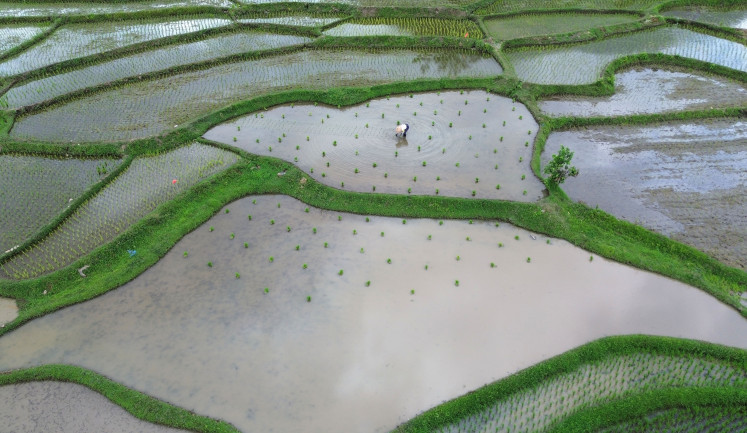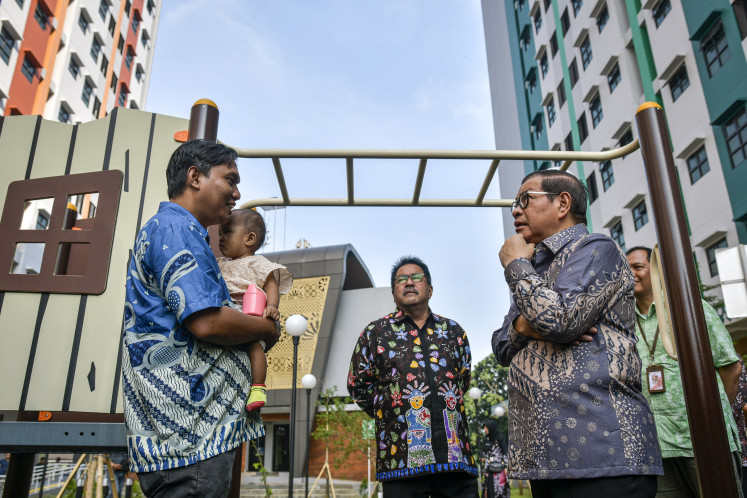Popular Reads
Top Results
Can't find what you're looking for?
View all search resultsPopular Reads
Top Results
Can't find what you're looking for?
View all search resultsEDITORIAL: Inequality in asset ownership
The latest economic surveys, including one by the World Bank in 2014, showing the widening inequality in the ownership of financial and physical assets as the richest 10 percent of Indonesians own an estimated 77 percent of the country’s wealth.
Change text size
Gift Premium Articles
to Anyone
W
e fully support the latest initiatives of the government to accelerate the reduction of inequality in asset ownership and income distribution through land distribution, free land titles and the nucleus estate-smallholder (NES) scheme.
The more concerted programs seem to have been warranted by the finding of the latest economic surveys, including one by the World Bank in 2014, showing the widening inequality in the ownership of financial and physical assets as the richest 10 percent of Indonesians own an estimated 77 percent of the country’s wealth. This means that income from financial and physical assets (such as land) benefits far fewer households in Indonesia than in many other countries.
The Agrarian and Spatial Planning Ministry has set itself a target of granting 5 million land titles this year at a cost of Rp 2 trillion (US$148 million), which will be fully financed by the state budget. Land titles will empower the poor to take maximum benefit from their physical assets, such access to bank loans. Usually, registering a property can be an arduous and costly procedure. Ministry data shows that of the 136 million plots of private land across the country, only 46 million plots have legal titles.
Encouraged by the smooth implementation of a land reform pilot project last year, the ministry will also speed up the redistribution of neglected land, estimated at 12.7 million hectares across the country, to landless people around forests through local customary communities.
The NES scheme, which is mandated by the 2014 Plantation Law, will empower smallholders because plantation companies will serve as agents of development, providing the farmers with certified seedling, agricultural extension services, marketing assistance and access to bank loans.
What should still be improved though are the rules to strengthen the bargaining power of smallholders as regards the terms and conditions in the partnership scheme, including the price of fresh oil palm fruit bunches the smallholders are obliged to refine at the big companies’ mills.
The NES concept is good for plantation development and for enhancing equitable development and good relations with local communities. We still believe harmonious and mutually beneficial cooperation between big plantation companies and smallholders is the most effective way of expanding tree-crop plantations, such as oil palm and rubber, without widening inequality in land holding.


















